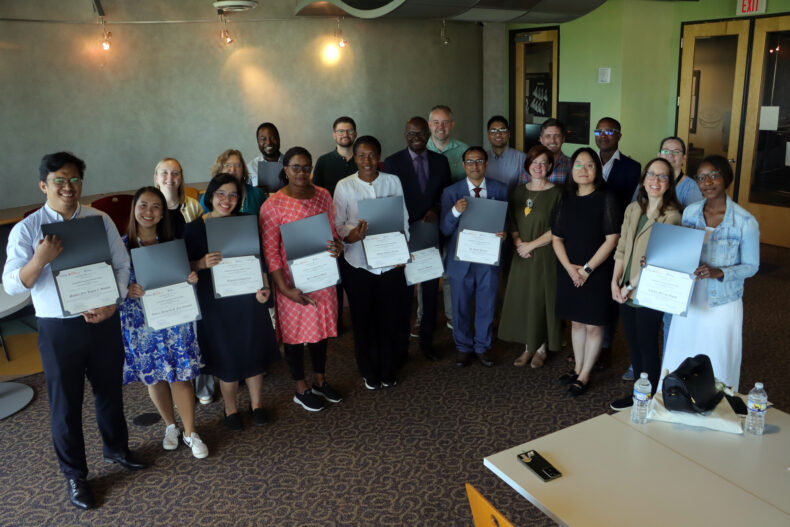
by Jill Clendening
Katherine Swartz, PhD, a nationally known leader in health policy research, encouraged others conducting investigations in the field to move beyond the data and into local communities to gather the stories behind the data during last week’s Research into Policy and Practice Lecture hosted by Vanderbilt University Medical Center’s Department of Health Policy.
Swartz, a professor of Health Economics and Policy at Harvard T.H. Chan School of Public Health, visited VUMC to share her current project examining how communities in the United States are faring following the implementation of the 2010 Affordable Care Act (ACA) and in the current state of uncertainty about federal funding of Medicaid, the ACA and specific health programs for at-risk populations.
“All the work that I’ve done previous to this was primarily using very large survey data,” said Swartz. “I began to realize right after the election in November 2016 that I could sit here and lecture to you about billions of people without health insurance or the percentage who are children, or the percentage of individuals who had an employer who did not offer health care insurance, and your eyes would start to glaze over.
“We need to start bringing in details about individuals and the communities in which they live and where they are receiving care. That’s what I’m talking about today, and I’m trying to convince you that we need to do both. We cannot just talk about statistics without bringing in something about the individuals and the nuances of the communities where they live.”
Swartz is a co-principal investigator on a research project that involves conducting direct surveys in selected counties in four states: North Carolina, Pennsylvania, Ohio and Wisconsin.
Her team is conducting interviews with key stakeholders in the communities including health department directors, hospital executives, business leaders, members of local media, education leaders, faith leaders, law enforcement and members of the judiciary.
Based on the project team’s investigation thus far, Swartz said that expecting local communities to meet all the health care needs of their residents is not realistic because local governments don’t have available revenue to provide all needed services, and their budgets must be balanced with other needs such as improving schools and economic development. An ever-growing senior population and residents who need substance abuse treatment are just two examples of populations that are straining community reserves.
Swartz also said that hospital emergency departments and community health clinics which are already operating in challenging economic environments will be even more compromised by cutbacks in Medicaid enrollment or reimbursements.
“Dr. Swartz is known for her groundbreaking empirical research — data-driven research — on the uninsured, but she’s learned that that is not enough,” said Melinda Buntin, PhD, professor and chair of the Department of Health Policy at Vanderbilt.
“She’s now showing the research community that you can take that research further and bring it home to people in their communities. I have definitely found that when you’re trying to convey information, a story to anchor the statistic can make all the difference. If it’s a story from a legislator’s home district, it has five times as much impact.”
Swartz’ lecture was part of a celebration of the Department of Health Policy’s fifth anniversary.
The department was formed in 2013 from a reorganized and expanded version of the former Department of Preventive Medicine, and it now serves as a multi-disciplinary base for health policy research and education.
Areas of faculty and staff expertise range from health economics to ethics and pharmacoepidemiology.
The mission of the Health Policy Department is to provide rigorous evidence and help drive health policy decisions at all levels of government and governance. The department is currently working on the addition of a doctoral program in Health Policy, Buntin said.
“We have grown by adding the right kind of people — by adding smart, productive, talented individuals who really care about communicating their research so it can be used by policymakers,” Buntin said.
“We also have a fantastic staff that helps us get our research done, and it’s really wonderful to feel that we’ve grown to the point at five years that we can start a doctoral program. We’re not finished growing, but that’s a really key point in our trajectory.”

















